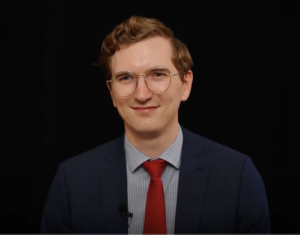 Hack for Change is jokingly referred to as “the biggest intergovernmental collaboration since World War II.”
Hack for Change is jokingly referred to as “the biggest intergovernmental collaboration since World War II.”
The truth is, the magnitude and turnout of the inaugural event surprised everyone involved. More than 11,000 people and 21 federal agencies participated in the 97 events that made up the Hack for Change weekend, in celebration of National Hacking Day on June 1.
Events took the form of hackathons, brigade meet-ups, and block parties. In California, Palo Alto hosted a civic hacking block party, occupying a whole section of the neighborhood to accommodate the 5,000 attendees. The atmosphere of the events also differed; the White House hackathon welcomed individuals in suits and ties, while the Affinity Lab on U Street was teaming with Red Bull-slugging, pizza box-toting hackers.
For those who don’t know what the average hackathon consists of, here is a brief explanation. The hackers are presented with a challenge and work together to find solutions using the open data provided to them. In the case of Hack for Change, the challenges were presented by federal agencies, each with a different challenge specific to their organization.
“The real objective is not only to see how communities actually work with federal data sets and federal agencies, but also to see how they connect on a local level with their local officials and increase their participation,” said Neisan Massarrat, Core Team at SecondMuse. “It’s all about improving civic engagement.”
SecondMuse, an innovation and collaboration agency and operational partner of the Hack for Change event, teamed with organizations such as Random Hacks of Kindness and Code for America to get the ball rolling and organize the event.
The nation’s capital hosted three different events: a hackathon held at Google that focused on hyper-local D.C.-area challenges; Affinity Labs on U Street worked on state and federal government challenges; and the White House worked specifically on its “We the People” platform.
Challenges included the Environmental Protection Agency’s Water Safety Challenge Response, which worked to create a database to organize water-safety violations and how to contact those in violation, and also the Labor Department’s efforts to connect women veterans with resources available to them related to child care, post-traumatic stress disorder and transportation support.
“What you build in a weekend might not save a life; the difference isn’t night and day,” said Todd Khozein, a partner at SecondMuse. “But for us, it really catalyzes our imagination. You see your ideas come into fruition — it’s a proof of concept.”
And for event organizers, that is really what Hack for Change is about: giving citizens a way to engage in their government and create solutions.
“We changed the dynamics of citizen engagement, collaboration and partnerships using technology to solve domestic challenges in an unprecedented way,” said Deborah Diaz, deputy CIO at NASA. “This massive collaboration movement involving federal, state and local government truly connected with all types of interested consumers, experts, youth, coders and interested citizens who want to voluntarily contribute and make a difference.”
The work Nicholas Skytland, program manager of NASA’s Open Innovation Program, has done with NASA and civic hacker collaboration is credited with starting this national conversation, as well as serving as a catalyst for the Hack for Change event.
“Citizens are crying out for the government to do something with open data, and we need to find ways to incentivize them to get involved and work on solutions,” he said. “A lot of people think that you have to move to the coast or to a big city to have opportunities. And one of our main objectives for Hack for Change was to identify those small-town areas and make them just as viable, and give them local solutions they can implement.”
Implementation of solutions is, of course, one of the most important goals of this event. On July 23, the White House will be hosting Champions of Change, where solutions created during Hack for Change are presented.
“The point of this is to connect the people who feel invested in these challenges and have an interest in them and the potential to invest,” Massarrat said. “And also, creating coordination across the spectrum in terms of aligning projects to resources that people give to us.”
Another goal Hack for Change organizers have is to increase understanding of what civic hacking is, and to get away from the negative connotation that seems to follow it.
“A hacker is someone who uses a minimum of resources and a maximum of brainpower to fix or tweak something,” Khozein said. “They’re creators.”
To learn more about the work done at Hack for Change and future events, check out HackforChange.org.


